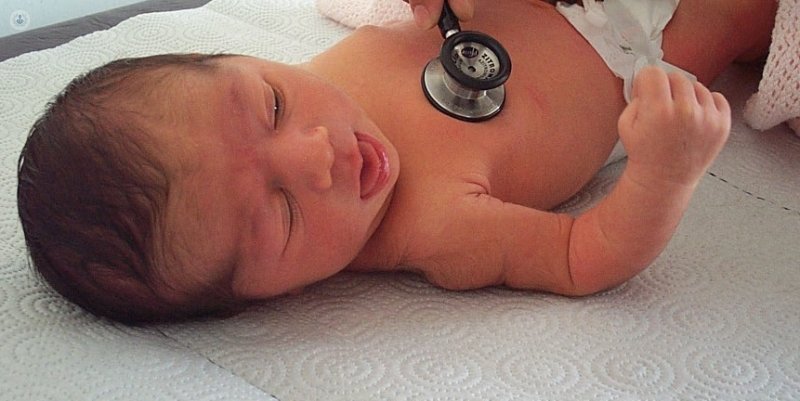Chest pain in children: how to act
Written by:Chest pain is a symptom that scares a lot. However, in children rarely it has cardiac causes unless it is associated with other symptoms. However, the pediatric cardiologist always do tests such as electrocardiogram, ultrasound or stress test to accurately diagnose heart disease or not the child may suffer.

What to do when a child has chest pain
It depends on the situation that produces it and the clinical condition of the child when he has pain. It is not the same as having chest pain while you are performing sport, accompanied by palpitations or loss of consciousness, while you're relaxing watching your favorite program without other disabling symptoms.
Chest pain in children: can mean heart disease or heart problems?
Chest pain is a symptom that frightens us much meaning in older people, usually due to a myocardial infarction (heart muscle) or angina. But children have noncardiac causes, especially if it is not associated with other symptoms, such as palpitations or shortness of breath.Anginal symptoms are very striking, with vegetative symptoms as sweating and paleness of face and, rather than pain, often described as tightness around the chest with shortness of breath and pain may radiate down the left arm or neck.Chest pain in children is mainly due to muscle aches or sternum, which is the bone that connects the rib cage ahead. Children often place it to fingertip at a particular site of the chest that increases with movement or deep breathing and decreases being still and disappears quickly, without other symptoms like palpitations (which would guide us towards an arrhythmia).
Diagnostic tests of possible pathologies
The main thing is the history, to guide us, in most cases, to something benign.Then we confirm our suspicions by additional tests such as electrocardiogram (ECG), cardiac ultrasound and sometimes a stress test, which conducted the expert Pediatric Cardiology. Depending on the findings, we can refine by contrast cardiac catheterization to rule out malformations of the coronary arteries that can give anginal symptoms due to lack of irrigation in the heart, Holter to try to capture some sort of arrhythmia, etc.
Treatment for heart disease find some
Treatment, as always, will depend on the source of pain or pathology.If due to an arrhythmia, for example, we treat with medication or can destroy the abnormal electrical pathway that produces heat or cold by catheterization, to avoid new episodes of tachycardia.If there really is a anginal pain will have to see the cause that produces:Be ruled thickening of the heart muscle (what is called hypertrophic cardiomyopathy) and see what is owed.Although sometimes this thickening is genetic, it may be due to a blockage of blood through the left ventricular outflow by a valve malformation eg chronic hypertension or making the heart work load normal.If you can not correct the cause and valvular stenosis or hypertension, we will begin to offer symptomatic treatment with drugs to relax the muscle and work with less load to avoid surgery.
What if repeated chest pain after treatment?
If these pains are repeated and are due to potentially dangerous causes, such as hypertrophic cardiomyopathy mentioned above, we will pass to the next stage in the treatment as it is surgery, resecting or cutting part of the thickened muscle and thus relieve the obstruction that produce those symptoms.
Edited by Patricia Crespo Pujante


